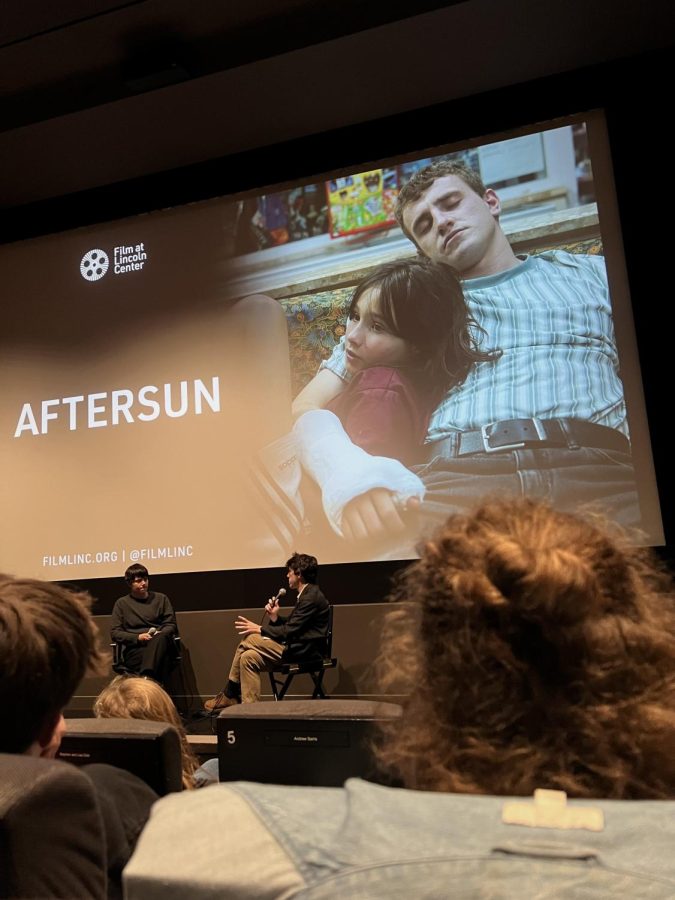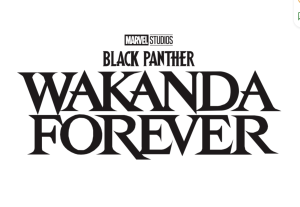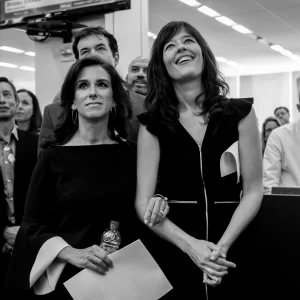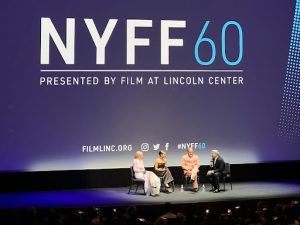The Delicacy of Charlotte Wells’ Debut Film, ‘Aftersun’
The directorial debut of Charlotte Wells’ creates waves in the film festival circuit, illustrating childhood memory and young adulthood
“Aftersun” captures the feeling of memories living in a blurry space of our minds.
December 8, 2022
Memories often live in a blurry, liminal space of our minds, revealed only once we learn more about the world around us. We ache desperately to piece images and words together that feel like a tattered scrapbook of the mind. Charlotte Wells’ debut feature film “Aftersun” captures this feeling.
In the film, Wells artfully displays a relationship between father and daughter through found footage, real-time memories and the fluid space where the truth is often revealed. She examines what it feels like when a child realizes their parents are just people and the lengths people will go to in order to hide their sorrow from their loved ones.
With the Fordham Lincoln Center campus being near Film at Lincoln Center, students are able to obtain discounted tickets, making “Aftersun” readily accessible to view. The Francesca Beale theater was packed on the afternoon of Nov. 5 as excited whispers hummed throughout the audience. I’ll never be able to duplicate the feeling in my body when the final sequence of “Aftersun” played and the screen lit up with “Written and Directed by Charlotte Wells.” My mouth hung open as a Film at Lincoln Center employee emerged with Wells before the audience for a last-minute Q&A session to dissect the last 98 minutes a group of strangers had witnessed together.
With a star-turning performance by Corio and an unsurprisingly phenomenal performance by Mescal, the duo pulls on the audience’s heartstrings with every minute of the film.
Wells is no stranger to curating a cinematic experience, having graduated from New York University’s (NYU) MBA/MFA dual degree program in 2017 and garnered acclaim for her short film, “Laps,” about a woman being sexually assaulted on New York transit in plain sight.
Additionally, she is known for her lack of dialogue and stunning visuals. Wells regards herself as coming onto the filmmaking scene later in her career, making her debut feature at age 35 after having originally planned on producing. She found herself falling into the filmmaking world during her time at NYU when she began collaborating with classmates.
Akin to “Aftersun” Producer Barry Jenkins’s Oscar-winning work “Moonlight,” the film manages to create a feeling of nostalgia that disregards the general and lives in the specific.
Through the story of 31-year-old Calum (Paul Mescal) and his 11-year-old daughter Sophie (Frankie Corio), Wells paints a landscape of a holiday vacation to Turkey in the 1990s with utter specificity. The narrative is orchestrated by 31-year-old Sophie (Celia Rowlson Hall), celebrating her birthday with her partner and newborn baby, trying to piece together what her father felt like at her age. The film shows current day Sophie, 11-year-old Sophie on the Turkey trip and a nightclub, or as Wells categorized it, a “rave,” in which adult Sophie sees her father, but he is always slightly out of reach. The focus on three main worlds in the film illustrates Wells’ artistry and directorial style, as well as her seamless writing and transitions between the three spaces.
To say that Mescal has separated himself from the pack with this performance would be an understatement.
The specificity of the Turkey vacation feeling so familiar is a skill Wells hones in on throughout the film. The details range from the tour guides’ obnoxiously bright polo colors to the hotel reception messing up the room reservation.
With a star-turning performance by Corio and an unsurprisingly phenomenal performance by Mescal, the duo pulls on the audience’s heartstrings with every minute of the film, most of it living in silence and relying on the actors’ expressions.
The film is imbued with a tender touch, an element of the film that Wells told the Q&A session was integral to Calum’s character. Throughout the film, Calum carries around a camcorder to record any and everything Sophie does.
Sophie finds herself recording on the camcorder out of her father’s sight, and in one of the most intimate scenes of the film, Calum stays awake in the middle of the night, watching the hidden footage from earlier that day. Sophie is seen sleeping peacefully in the king-sized bed as Calum’s face is illuminated by the camcorder. We don’t see the footage, but we hear the audio of Calum asking Sophie to say that her “dad is the best.” He smiles to himself before powering the camcorder off.
It is in these moments of privacy that the audience gets to see Mescal shine and reveal the layers to his character. To say that Mescal has separated himself from the pack with this performance would be an understatement.
Corio, making her feature film debut at 11 years old, illustrates Sophie’s wonder and childlike innocence throughout the film. Wells noted that Corio never had her hands on a full script. With child actors, Wells stressed the importance of not having their performance seem too well-rehearsed.
Due to this, Corio was not aware of the context of the movie. Wells said that once Corio started to catch onto the content of the film, she’d often say, “Go and make your sad movie, Charlie!”
Corio’s performance as Sophie reminds audiences of the desire to grow up a bit quicker than you should or need to, as she hangs out with teenagers on the Turkey trip and encounters her first kiss with a boy. She finds herself running with the older crowd and working hard to separate herself from her father when they get into a fight at karaoke night, assuring him that she wants to stay out later and be alone.
While the film focuses on the intimacy and delicacy of childhood memories, it makes a point to also highlight on the mental health of Calum. There is a tension throughout the film that something bad will happen to him, and audience members often find themselves holding their breath when there are scenes of him alone — fearful he will harm himself.
It can be inferred from the ending of the film that Calum dies by suicide shortly after the Turkey trip — the last time Sophie sees him at 11 years old in his striped shirt is also the recurring image that 31-year-old Sophie has been seeing in her liminal space of the rave. Adult Sophie, turning the age that her father was on the Turkey trip, is searching for answers as she begins to delve into her own realm of parenting and is faced with the harsh truth that she wasn’t able to save her father.
After the Q&A with Wells, I was able to chat with her for a moment in the hallway. She said that she is overwhelmed with the response the film has gotten from audience members and critics alike.
“Aftersun” is playing now at Film at Lincoln Center, after being extended twice now throughout the film festival circuit.















